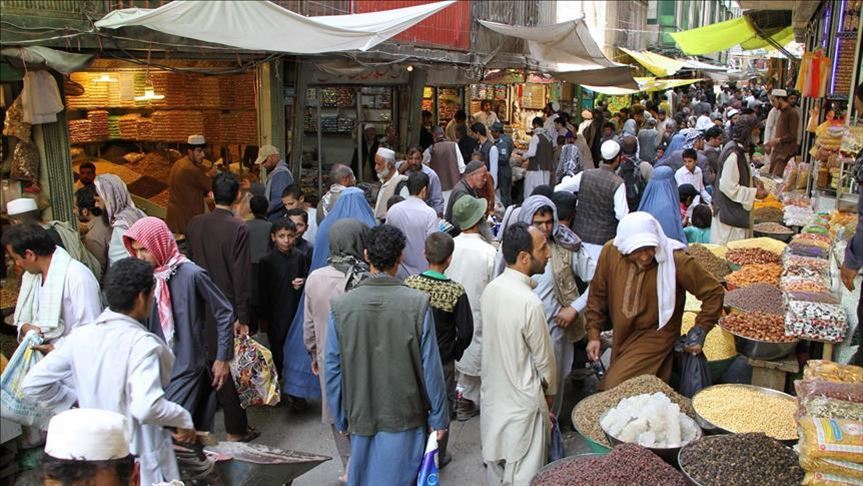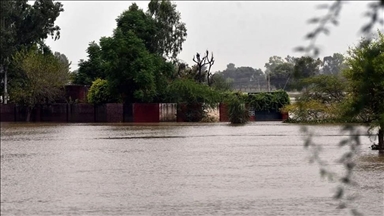Soviet invasion: Afghanistan’s 40-year-old open wound
Without putting an end to culture of impunity, deadly cycle of violence cannot be stopped in Afghanistan, say analysts

KABUL, Afghanistan
Four decades since the Soviet invasion of Afghanistan, the country continues to teeter precariously between war and peace, with lives being lost in an ongoing conflict day and night.
On Dec. 27, 1979, special forces of the Red Army disguised as Afghan soldiers assassinated President Hafizullah Amin and occupied key government installations in Kabul, thus beginning the brazen Soviet invasion of Afghanistan and establishing a bloody war theater for generations of Afghans to come with dreadful global implications.
Quagmire of death, destruction
“I can recall that day just like yesterday. It still makes me shiver,” retired Brig. Mohammad Arif, an Afghan National Army veteran, told Anadolu Agency.
“There was an unusual movement of troops during the day, and in the evening, Radio Kabul all of a sudden started broadcasting from [the former Soviet state of] Uzbekistan and announced the details of the invasion and fall of Amin,” he said.
Arif, who lost a number of close and distant relatives in the ensuing conflict, linked the episodes of death and destruction from the ongoing Taliban-led insurgency and earlier rise of the Taliban as well as the civil war of the 1990s with the events surrounding the Soviet invasion.
“Two of my brothers were killed by the Mujahideen,” he said, referring to anti-Soviet rebels supported by the Muslim world and the West.
“Many of my distant relatives were killed in operations by [pro-Soviet] government forces. We continue to witness the killing of Afghans on both sides even today,” he said, referring to pro-government forces and Taliban rebels.
Well over 2 million Afghans have been killed since 1978, according to the Afghanistan Centre for Memory and Dialogue (ACMD). The ACMD strives to preserve the memory of these victims through their belongings, ranging from the bloodstained clothes and personal diaries of soldiers and civilians to the dolls and toys of children. These tragic reminders are well-kept in ‘memory boxes’ of glass on display in a museum not far from the iconic Darul Aman and Tajbeg palaces in Kabul, which were the primary sites of the Soviet invasion and assassination of President Amin.
Paradox of sacred Jihad, culture of impunity
The Soviet forces withdrew from Afghanistan in 1989 thanks to the jihad by Afghans with generous support from the Muslim world and the West, and Afghans take deep pride in driving the Soviets from their country.
But the killing spree has continued.
“Without putting an end to the culture of impunity for all the war crimes and crimes against humanity, this vicious cycle cannot be stopped,” said Nezam Uddin, director of the Peace and Human Rights Organization, who strongly supports the opening of an investigation by the International Court of Justice into the crimes committed by the Taliban, Afghan forces and U.S. actors in the context of the armed conflict in Afghanistan.
Last month, U.S. President Donald Trump granted clemency to two U.S. army officers who were convicted of or charged with war crimes in Afghanistan.
A full pardon was granted to 1st Lt. Clint Lorance, who had ordered soldiers under his command to open fire on three men who were moving toward them on a motorcycle “with unusual speed,” according to a White House statement. Lorance was originally convicted of killing two men in the incident.
Trump also pardoned Maj. Matthew Golsteyn, a Green Beret who was charged with an unlawful killing in Afghanistan and was facing a court martial, the White House statement said.
Prior to this, under former Afghan President Hamid Karzai, a controversial "National Stability and Reconciliation" bill was passed by both houses of the Afghan parliament that gives blanket immunity from prosecution for serious violations of human rights, including war crimes and crimes against humanity committed in the past 30 years.
In the past 10 years alone, according to the UN, more than 100,000 civilians were killed or injured in Afghanistan, with many more displaced.
Much to the disappointment of people like human rights activist Nezam Uddin, the International Criminal Court (ICC) on April 12, 2019 rejected an appeal to open an investigation into the situation in Afghanistan on the grounds that it would not serve “the interests of justice.”
Under the current Western-backed government in Kabul, President Mohammad Ashraf Ghani has made rejuvenated yet fragile peace talks with the Taliban conditional with a nationwide ceasefire, a plea so far disregarded by the insurgents, who are bent on driving the “invaders” -- this time, the Americans -- out of Afghanistan.
Anadolu Agency website contains only a portion of the news stories offered to subscribers in the AA News Broadcasting System (HAS), and in summarized form. Please contact us for subscription options.


